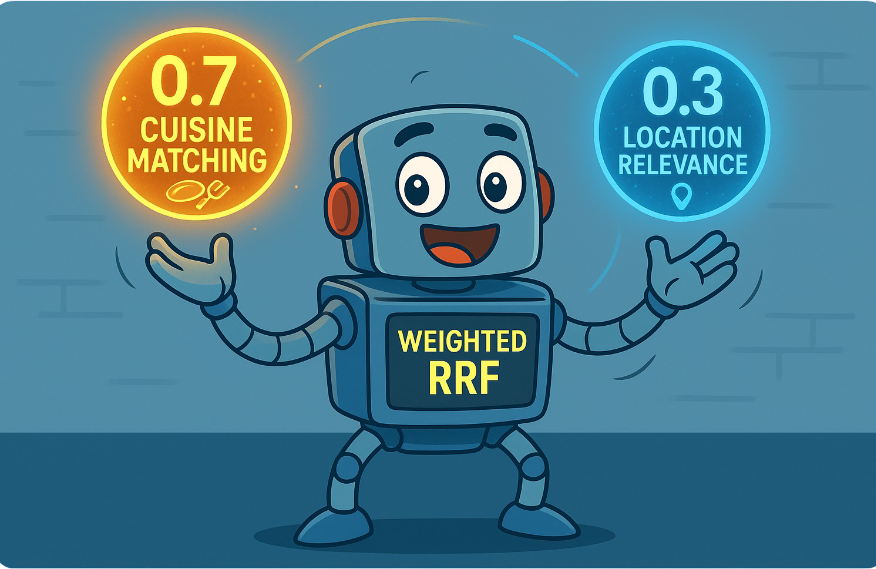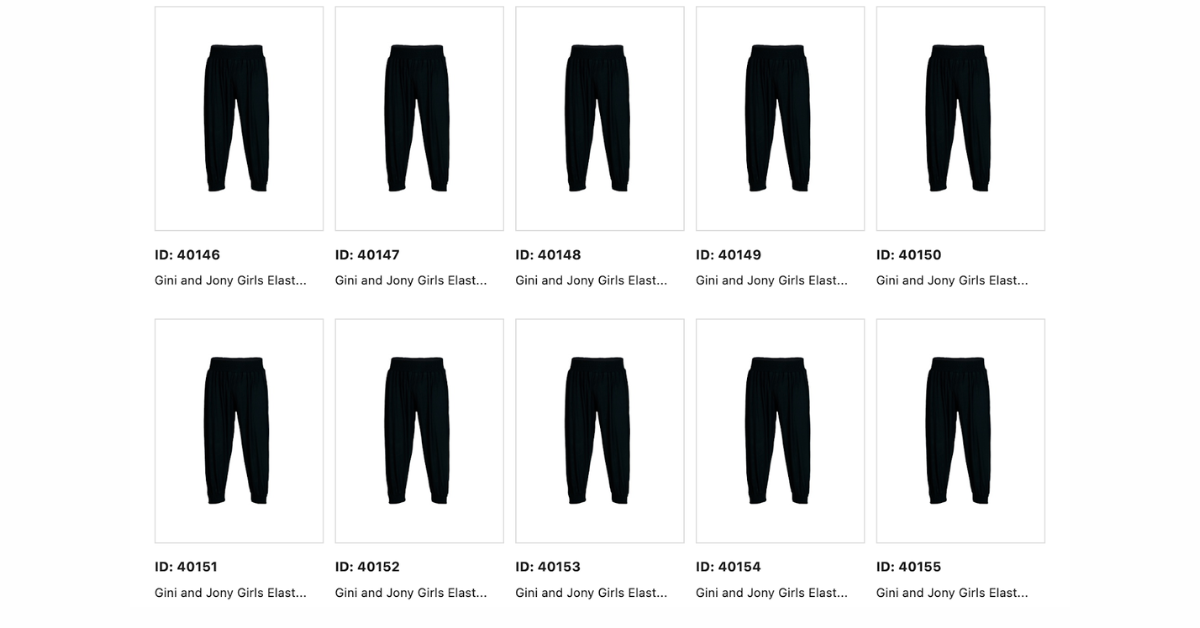Span queries have long been a tool for ordered and proximity search. These are especially useful for specific domains, such as legal or patent search. But the relatively new Interval queries actually fit this job much better. Unlike Span queries, Interval queries are true positional queries that score documents only based on positional proximity (expanded upon below).
Starting from Elasticsearch v8.16, we have brought Interval queries into parity with Span queries. Specifically:
- Interval queries now support "range" and "regexp" rules.
- Interval rules based on multiple terms similar to Span queries can expand up to
indices.query.bool.max_clause_countterms instead of previous128value.
Our future plan is to deprecate Span queries in favor of Intervals queries, which cover the same functional capability but do so in a more user-friendly way.
Advantages of Interval queries over Span queries
Interval queries rank documents based on the order and proximity of matching terms. Some advantages of Interval queries:
- True positional queries
- Grounded in academic research, based on the minimal interval semantics paper with proven algorithms that scale linearly with the number of positions
- Simpler syntax
- Slightly faster (no need of score calculations based on corpus statistics)
- Ability to use scripts for specialized use cases
Interval queries are true positional queries and only consider positional information while scoring documents (scores are inversely proportional to interval's length). This is unlike Span queries that also consider standard metrics like TF-IDF. Below is an example that illustrates how interval queries can do better ranking.
PUT docs
{
"mappings": {
"properties": {
"content": {
"type": "text"
}
}
}
}
PUT docs/_doc/1
{
"content" : "She sells beautiful seashells by the seashore, their smooth shapes shining in the sun, catching the light with every curve. The girl’s bright smile is just as inviting, drawing people in as they stop to admire the shells, each one a little piece of the ocean she loves. Her gentle voice, like the sound of the waves, adds to the peaceful charm of the moment."
}
PUT docs/_doc/2
{
"content" : "She plays; her father sells seashells. "
}We want to find documents where the term "she" is near the term "sells". The desired ranking would return the 1st document followed by the 2nd document, as these terms occur closer to each other in the 1st document than in the second document.
But if we run a Span query, we will get a different ranking: [doc2, doc1], because Span queries in addition to proximity calculations also incorporate corpus stats such as TF and IDF metrics that will distort ranking purely by proximity.
GET docs/_search?explain=true
{
"query": {
"span_near": {
"clauses": [
{
"span_term": {
"content": "she"
}
},
{
"span_term": {
"content": "sells"
}
}
],
"slop": 10,
"in_order": true
}
}
}In contrast, Interval queries calculate scores based on proximity and don't consider corpus stats and length of documents. We will get the desired ranking: [doc1, doc2].
GET docs/_search?explain=true
{
"query": {
"intervals": {
"content": {
"match": {
"query": "she sells",
"max_gaps": 10,
"ordered" : true
}
}
}
}
}This makes Interval queries an ideal choice for true proximity queries.
Interval queries allow to extract the proximity score as a signal for the overall relevance score. They are optimised to be mixed with other relevance signals like BM25, for instance:
GET docs/_search
{
"query": {
"bool": {
"must": {
"match": {
"content": {
"query": "she sells",
"boost": "{{bm25_boost}}"
}
}
},
"should": {
"intervals": {
"content": {
"match": {
"query": "she sells",
"max_gaps": 10
},
"boost": "{{proximity_boost}}"
}
}
}
}
}
}Note that this could also be applied to rescoring: we can make the first pass with BM25 alone and then add a rescorer with BM25 + Intervals combination.
Note that if we need to model Span queries behaviour in matching and scoring by BM25 and proximity, we can do it by combining interval queries with BM25 queries as must clauses in a boolean query with appropriate boosts set.
Transition guide
Below we show ways to transition from the following Span queries to the equivalent Interval queries:
- span_containing
- span_field_masking
- span_first
- span_multi
- span_near
- span_not
- span_or
- span_term
- span_within
PUT parks
{
"mappings": {
"properties": {
"park": {
"type": "text"
},
"park_rules": {
"type": "text"
}
}
}
}
PUT parks/_doc/1
{
"park" : "Sunny Meadows Park",
"park_rules" : "Children are encouraged to enjoy our playground equipment, including slides, swings, and climbing structures. Feeding the ducks and fish in the pond is allowed, but only with approved feed available at the park office. Children are not permitted to climb trees or enter the park's fountains and water features. Please do not bring glass containers, sharp objects, or personal sports equipment into the park."
}
PUT parks/_doc/2
{
"park" : "Greenwood Forest Park",
"park_rules" : "Children are welcome to explore our nature trails, participate in organized activities, and use the designated picnic areas. Picking flowers, disturbing wildlife, or leaving the designated trails is not allowed. Children must be accompanied by an adult when using the park's grills and fire pits. Please refrain from bringing pets, bicycles, or scooters into the park."
}
PUT parks/_doc/3
{
"park" : "Happy Haven Playground",
"park_rules" : "Children can enjoy our sandbox, jungle gym, and seesaws, as well as participate in organized games and activities. Running, shouting, or playing rough games near the playground equipment is not permitted. Children must be supervised by an adult at all times and should use the equipment according to their age and size. Please do not bring food, drinks, or chewing gum into the playground area."
}
PUT parks/_doc/4
{
"park" : "Lakeside Recreation Park",
"park_rules" : "Children can enjoy fishing at the lake with an adult, using the sports fields for organized games, and playing in the designated play areas. Swimming, wading, or boating in the lake is strictly prohibited. Children must wear appropriate safety gear when using the sports fields and play equipment. Please do not bring alcohol, tobacco products, or illegal substances into the park."
}
PUT parks/_doc/5
{
"park" : "Adventure Land Park",
"park_rules" : "Children are encouraged to use our zip lines, ropes courses, and climbing walls under adult supervision and with proper safety equipment. Running, pushing, or engaging in horseplay near the adventure equipment is not allowed. Children must follow all height, weight, and age restrictions for each activity. Please do not bring personal items, such as cell phones or cameras, onto the adventure equipment."
}SPAN NEAR
GET parks/_search
{
"query": {
"span_near": {
"clauses": [
{
"span_term": {
"park_rules": "prohibited"
}
},
{
"span_term": {
"park_rules": "swimming"
}
}
],
"slop": 10,
"in_order": false
}
},
"highlight": {
"fields": {
"park_rules": {}
}
}
}
GET parks/_search
{
"query": {
"intervals": {
"park_rules": {
"match": {
"query": "swimming prohibited",
"max_gaps": 10,
"ordered" : false
}
}
}
},
"highlight": {
"fields": {
"park_rules": {}
}
}
}SPAN FIRST
GET parks/_search
{
"query": {
"span_first": {
"match": {
"span_term": { "park_rules": "sandbox" }
},
"end": 5
}
},
"highlight": {
"fields": {
"park_rules": {}
}
}
}
GET parks/_search
{
"query": {
"intervals" : {
"park_rules" : {
"match" : {
"query" : "sandbox",
"filter" : {
"script" : {
"source" : "interval.end < 5"
}
}
}
}
}
},
"highlight": {
"fields": {
"park_rules": {}
}
}
}SPAN OR
GET parks/_search
{
"query": {
"span_or" : {
"clauses" : [
{ "span_term" : { "park_rules" : "prohibited" } },
{ "span_near": {"clauses": [{"span_term": {"park_rules": "not"}}, {"span_term": {"park_rules": "allowed"}}], "in_order": true}},
{ "span_near": {"clauses": [{"span_term": {"park_rules": "not"}}, {"span_term": {"park_rules": "permitted"}}], "in_order": true}}
]
}
},
"highlight": {
"fields": {
"park_rules": {}
}
}
}
GET parks/_search
{
"query": {
"intervals" : {
"park_rules" : {
"any_of" : {
"intervals" : [
{ "match" : { "query" : "prohibited"} },
{ "match" : { "query" : "not allowed", "ordered" : true } },
{ "match" : { "query" : "not permitted", "ordered" : true } }
]
}
}
}
},
"highlight": {
"fields": {
"park_rules": {}
}
}
}SPAN CONTAINING
GET parks/_search
{
"query": {
"span_containing": {
"little": {
"span_term": {
"park_rules": "sports"
}
},
"big": {
"span_near": {
"clauses": [
{
"span_term": {
"park_rules": "children"
}
},
{
"span_term": {
"park_rules": "park"
}
}
],
"slop": 50,
"in_order": false
}
}
}
},
"highlight": {
"fields": {
"park_rules": {}
}
}
}
GET parks/_search
{
"query": {
"intervals": {
"park_rules": {
"match": {
"query": "children park",
"max_gaps": 50,
"filter" : {
"containing" : {
"match" : {
"query" : "sports"
}
}
}
}
}
}
},
"highlight": {
"fields": {
"park_rules": {}
}
}
}SPAN WITHIN
GET parks/_search
{
"query": {
"span_within": {
"little": {
"span_term": {
"park_rules": "sports"
}
},
"big": {
"span_near": {
"clauses": [
{
"span_term": {
"park_rules": "children"
}
},
{
"span_term": {
"park_rules": "park"
}
}
],
"slop": 50,
"in_order": false
}
}
}
},
"highlight": {
"fields": {
"park_rules": {
}
}
}
}
GET parks/_search
{
"query": {
"intervals": {
"park_rules": {
"match": {
"query": "sports",
"filter" : {
"contained_by" : {
"match" : {
"query" : "children park",
"max_gaps": 50
}
}
}
}
}
}
},
"highlight": {
"fields": {
"park_rules": {
"number_of_fragments": 0
}
}
}
}SPAN NOT
GET parks/_search
{
"query": {
"span_not": {
"include": {
"span_term": { "park_rules": "allowed" }
},
"exclude": {
"span_near": {
"clauses": [
{ "span_term": { "park_rules": "not" } },
{ "span_term": { "park_rules": "allowed" } }
],
"slop": 0,
"in_order": true
}
}
}
},
"highlight": {
"fields": {
"park_rules": {}
}
}
}
GET parks/_search
{
"query": {
"intervals": {
"park_rules": {
"match": {
"query": "allowed",
"filter": {
"not_contained_by": {
"match": {
"query": "not allowed",
"max_gaps": 0,
"ordered" : true
}
}
}
}
}
}
},
"highlight": {
"fields": {
"park_rules": {}
}
}
}SPAN_MULTI
wildcard
GET parks/_search
{
"query": {
"span_multi": {
"match": {
"wildcard": {
"park_rules": {"value": "sand*" }
}
}
}
}
}
GET parks/_search
{
"query": {
"intervals": {
"park_rules": {
"wildcard": {
"pattern": "sand*"
}
}
}
}
}fuzzy
GET parks/_search
{
"query": {
"span_multi": {
"match": {
"fuzzy": {
"park_rules": {"value": "sandbo" }
}
}
}
}
}
GET parks/_search
{
"query": {
"intervals": {
"park_rules": {
"fuzzy": {
"term": "sandbo"
}
}
}
}
}prefix
GET parks/_search
{
"query": {
"span_multi": {
"match": {
"prefix": {
"park_rules": {"value": "sandbo" }
}
}
}
}
}
GET parks/_search
{
"query": {
"intervals": {
"park_rules": {
"prefix": {
"prefix": "sandbo"
}
}
}
}
}regexp
GET parks/_search
{
"query": {
"span_multi": {
"match": {
"regexp": {
"park_rules": {"value": "sand.*" }
}
}
}
}
}
GET parks/_search
{
"query": {
"intervals": {
"park_rules": {
"regexp": {
"pattern": "sand.*"
}
}
}
}
}range
GET parks/_search
{
"query": {
"span_multi": {
"match": {
"range": {
"park": {
"gte" : "a",
"lte": "h"
}
}
}
}
}
}
GET parks/_search
{
"query": {
"intervals": {
"park": {
"range": {
"gte" : "a",
"lte" : "h"
}
}
}
}
}span_field_masking
use use_field of Intervals
GET parks/_search
{
"query": {
"span_near": {
"clauses": [
{
"span_term": {
"park_rules": "nature"
}
},
{
"span_field_masking": {
"query": {
"span_term": {
"park_rules.stemmed": "trail"
}
},
"field": "park_rules"
}
}
],
"slop": 5
}
}
}
GET parks/_search
{
"query": {
"intervals" : {
"park_rules" : {
"all_of" : {
"ordered" : true,
"max_gaps" : 5,
"intervals" : [
{
"match" : {
"query" : "nature"
}
},
{
"match" : {
"query" : "trail",
"use_field" : "park_rules.stemmed"
}
}
]
}
}
}
}
}Conclusion
Interval queries is a powerful tool to do true positional search. Try them with expanded functionalities from 8.16 release.
Ready to try this out on your own? Start a free trial.
Want to get Elastic certified? Find out when the next Elasticsearch Engineer training is running!
Related content

September 15, 2025
Balancing the scales: Making reciprocal rank fusion (RRF) smarter with weights
Exploring weighted reciprocal rank fusion (RRF) in Elasticsearch and how it works through practical examples.

September 8, 2025
MCP for intelligent search
Building an intelligent search system by integrating Elastic's intelligent query layer with MCP to enhance the generative efficacy of LLMs.

Building intelligent duplicate detection with Elasticsearch and AI
Explore how organizations can leverage Elasticsearch to detect and handle duplicates in loan or insurance applications.

July 10, 2025
Diversifying search results with Maximum Marginal Relevance
Implementing the Maximum Marginal Relevance (MMR) algorithm with Elasticsearch and Python. This blog includes code examples for vector search reranking.

July 9, 2025
Semantic text is all that and a bag of (BBQ) chips! With configurable chunking settings and index options
Semantic text search is now customizable, with support for customizable chunking settings and index options to customize vector quantization, making semantic_text more powerful for expert use cases.